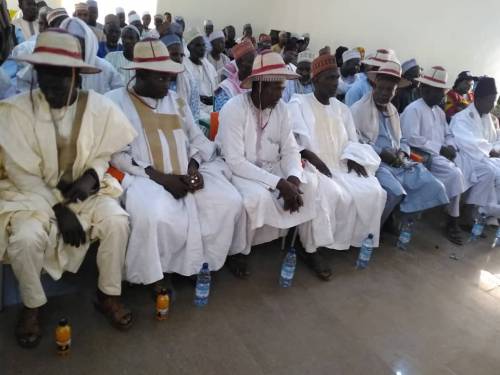National Issues
The Last Jihad (Part 3) -By Dr Austin Orette
Critics argue that insecurity and poor governance have contributed to mass migration (“japa”), weakened national cohesion, and created opportunities for corruption. The unequal distribution of resources and political appointments further fuels resentment and mistrust among communities.

Nigeria’s History of Power Struggles and Ethnic Politics
Nigeria’s complex history has been shaped by ethnic, cultural, and political rivalries that continue to influence governance and national unity today. Analysts argue that competition for dominance among groups in the North and South has often undermined peace, democracy, and equitable development.
During the colonial and post-colonial periods, different ruling classes and elites consolidated power using political influence, religion, and control of state resources. Historians note that both military and civilian governments have, at various times, relied on centralization of authority, land decrees, and manipulation of ethnic or regional loyalties to maintain control.
For instance, land policies introduced during military rule — such as the Land Use Decree — restructured property rights in ways that continue to generate conflict today. Critics also point to how successive regimes used state power to advance narrow interests, suppress dissent, or strengthen patronage networks.
The persistence of insecurity in parts of the North, alongside low-intensity conflicts across the country, is seen by observers as a deliberate tool of political control. Militias, armed groups, and religious movements have sometimes been supported — directly or indirectly — by political actors seeking leverage.
Nigeria’s history of military coups, constitutional manipulations, and controversial policies such as Sharia expansion or membership in international organizations like the OIC reflect broader struggles over the country’s identity as a secular, multiethnic, and multireligious state.
Critics argue that insecurity and poor governance have contributed to mass migration (“japa”), weakened national cohesion, and created opportunities for corruption. The unequal distribution of resources and political appointments further fuels resentment and mistrust among communities.
While some elites have been accused of exploiting religion or ethnicity for political gain, many scholars stress the importance of avoiding blanket blame on any single group. Instead, they argue that Nigeria’s structural challenges stem from decades of systemic manipulation of power, patronage politics, and weak institutions.
To move forward, experts recommend dialogue, constitutional reform, decentralization of power, and accountability in governance. True democratic practice, they argue, must replace coercion, corruption, and identity-based politics if Nigeria is to achieve lasting peace and unity.










